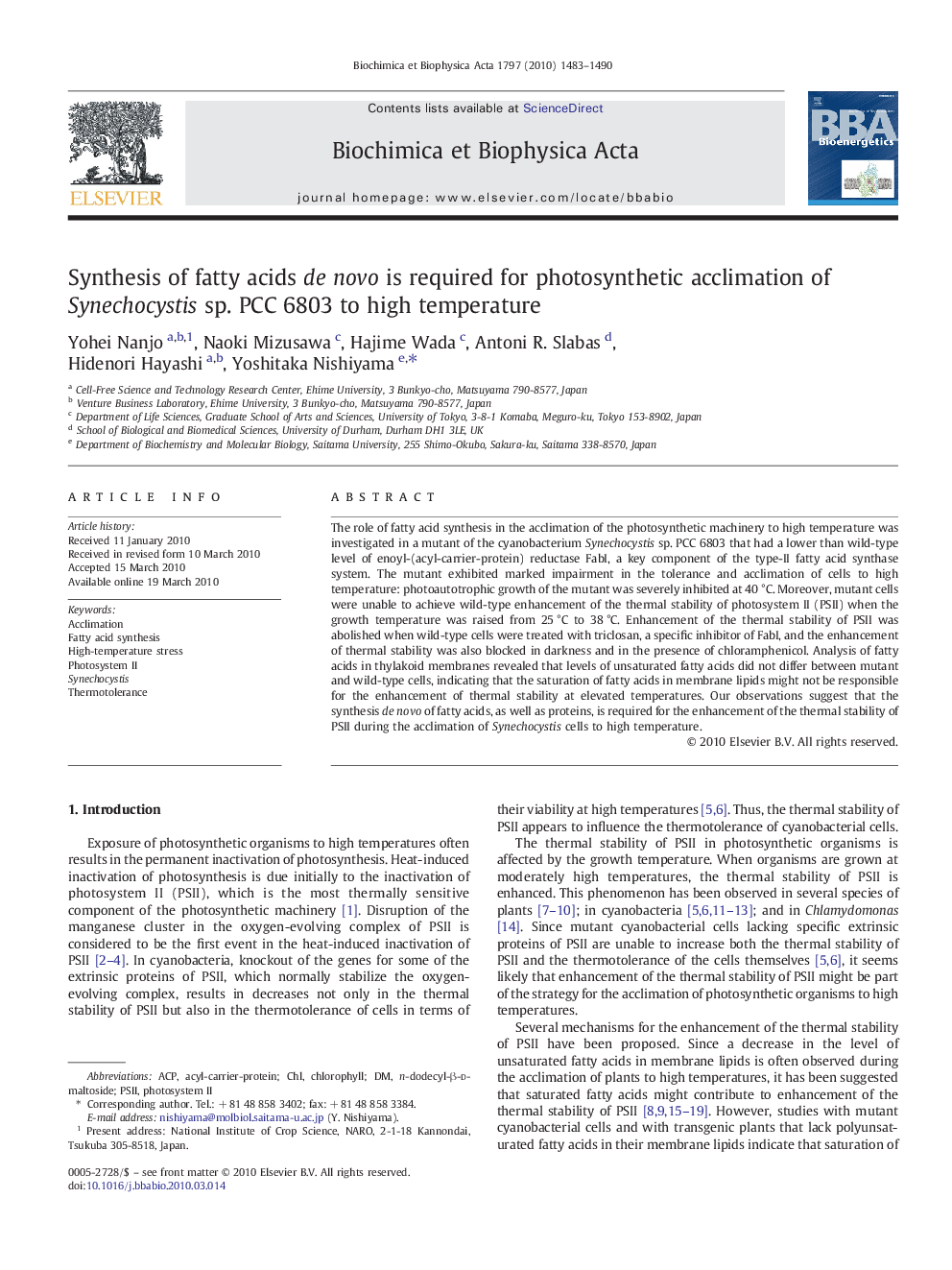| Article ID | Journal | Published Year | Pages | File Type |
|---|---|---|---|---|
| 1942836 | Biochimica et Biophysica Acta (BBA) - Bioenergetics | 2010 | 8 Pages |
The role of fatty acid synthesis in the acclimation of the photosynthetic machinery to high temperature was investigated in a mutant of the cyanobacterium Synechocystis sp. PCC 6803 that had a lower than wild-type level of enoyl-(acyl-carrier-protein) reductase FabI, a key component of the type-II fatty acid synthase system. The mutant exhibited marked impairment in the tolerance and acclimation of cells to high temperature: photoautotrophic growth of the mutant was severely inhibited at 40 °C. Moreover, mutant cells were unable to achieve wild-type enhancement of the thermal stability of photosystem II (PSII) when the growth temperature was raised from 25 °C to 38 °C. Enhancement of the thermal stability of PSII was abolished when wild-type cells were treated with triclosan, a specific inhibitor of FabI, and the enhancement of thermal stability was also blocked in darkness and in the presence of chloramphenicol. Analysis of fatty acids in thylakoid membranes revealed that levels of unsaturated fatty acids did not differ between mutant and wild-type cells, indicating that the saturation of fatty acids in membrane lipids might not be responsible for the enhancement of thermal stability at elevated temperatures. Our observations suggest that the synthesis de novo of fatty acids, as well as proteins, is required for the enhancement of the thermal stability of PSII during the acclimation of Synechocystis cells to high temperature.
